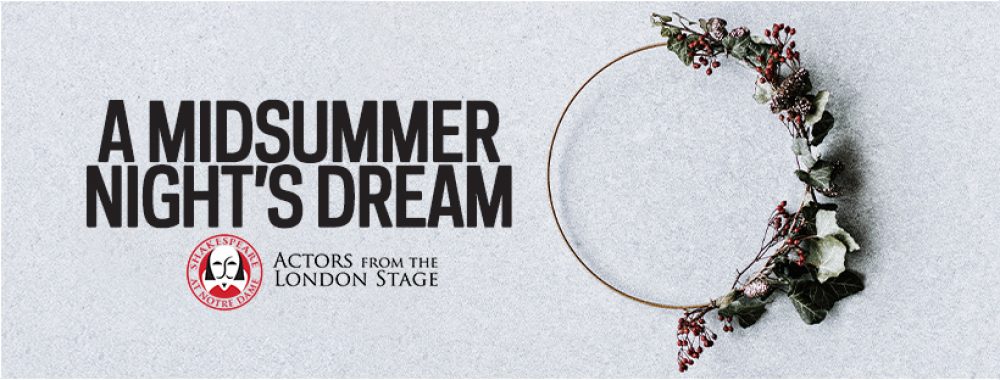By Grace Andrews
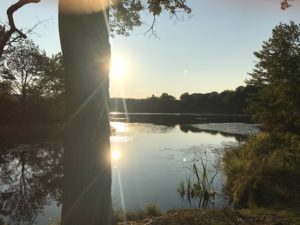 Wellesley campus holds Lake Waban, deep blue water which mid-fall is hugged by trees in blazing deep orange and red. Walking around it, the crisp Massachusetts air is warmed by the atmosphere of this place – alive and vibrant with ingenuity.
Wellesley campus holds Lake Waban, deep blue water which mid-fall is hugged by trees in blazing deep orange and red. Walking around it, the crisp Massachusetts air is warmed by the atmosphere of this place – alive and vibrant with ingenuity.
I was fascinated to visit an all-female college; interested to get a sense of how the young women interacted, the methodology in teaching and the appetite for learning. In a workshop entitled ‘Women Centre Stage’, I asked the group what they were passionate about. ‘Protest Literature!’, ‘Language!’, ‘Spoken-word!’, ‘Penguins!’. Initially shy and graciously polite, we spoke about what it was like to take up more space; to lengthen our strides, take in more breath, allow our arms to swing with more freedom. We experimented with increased direct eye contact – and asked the question, ‘When do we allow ourselves to truly be seen?’. We spoke of clothes that constrict our breath, cinched in our waists, our modern corsets. We discussed the pressure to be right, to be liked, to please, to serve. We engaged with the temptation to prioritise being interesting and impressive over being ourselves. We acknowledged the words we frequently chose not to say, and how they build up to form a fire which can erupt.
We allowed ourselves to breathe, and have the courage to just be. In letting this tension fall away, we came to the core of what it means to be female today, and we wrestled this with relish. I was astounded by the levels of generosity, kindness and respect in the room – not always a given – and the women listened to each other, and really listened, with keen empathy and sense of joy.
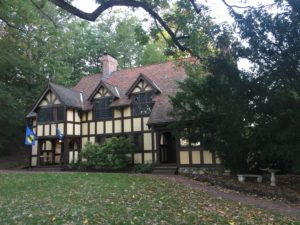
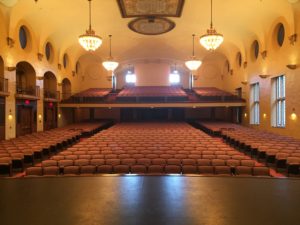 The Shakespeare Society at Wellesley is a further force to behold, with freshman and seniors working together to celebrate and indulge in the Bard’s canon. Their clubhouse is a perfect replica of Shakespeare’s birthplace, and the passion and energy fizzing within its walls is testament to the girls’ bright and wide-eyed hunger for bringing his language to life. They rehearse and perform plays in a beautiful upstairs stage area, complete with Elizabethan beams and ‘Juliet Balcony’. Fittingly, they’re currently rehearsing Romeo and Juliet – and there’s no question of gender-blind casting here – with fierce young women taking on Romeo like he was written for them.
The Shakespeare Society at Wellesley is a further force to behold, with freshman and seniors working together to celebrate and indulge in the Bard’s canon. Their clubhouse is a perfect replica of Shakespeare’s birthplace, and the passion and energy fizzing within its walls is testament to the girls’ bright and wide-eyed hunger for bringing his language to life. They rehearse and perform plays in a beautiful upstairs stage area, complete with Elizabethan beams and ‘Juliet Balcony’. Fittingly, they’re currently rehearsing Romeo and Juliet – and there’s no question of gender-blind casting here – with fierce young women taking on Romeo like he was written for them.
I think of playing Ophelia and Laertes, and how every show I attempt to find a new and better way to tell their story. It seems too easy to simply change physicality. For Laertes I began by widening my feet, puffing up my chest, raising my chin and finding freedom in my gestures. Ophelia was much smaller, narrower, more careful in her movements. I found their scope of breath in their horizons, how Laertes can breathe with the sky as his limit – the ocean and world laid out for him as his playground – an opportunity he can reach. I imagine Ophelia existing within walls, rules, routines – and her breath would match her shallow room for growth. I thought of Laertes as a puppy, with bounce and vigour – and Ophelia as a caged bird, tethered, with a sense of missing something she never knew – flight. I thought of Laertes as earth or fire, powerful and unpredictable – and Ophelia as water, movable, changeable, malleable – and as strong as she is fragile.
Their gender does not define them, but as the actor is it hard to ignore – and I strive to find the truth in the masculinity and femininity – and how both exist within us all.
Laertes:
Too much of water hast thou, poor Ophelia,
And therefore I forbid my tears. But yet
It is our trick. Nature her custom holds,
Let shame say what it will. When these are gone,
The woman will be out.—Adieu, my lord.
I have a speech of fire that fain would blaze,
But that this folly doubts it.
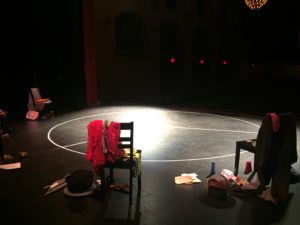 As we pack up and leave Wellesley to go on to Tennessee, I walk through the hallways lined with black and white photographs of notable alumni spanning over 140 years. I wonder what these women didn’t say, what they held back, what stood in their way. What gave them focus, drive, what words they would have chosen for their passion. I think of the moment they left the world of Wellesley, and how they will have had to adapt, to shift, to grow even further to get their voices heard.
As we pack up and leave Wellesley to go on to Tennessee, I walk through the hallways lined with black and white photographs of notable alumni spanning over 140 years. I wonder what these women didn’t say, what they held back, what stood in their way. What gave them focus, drive, what words they would have chosen for their passion. I think of the moment they left the world of Wellesley, and how they will have had to adapt, to shift, to grow even further to get their voices heard.
